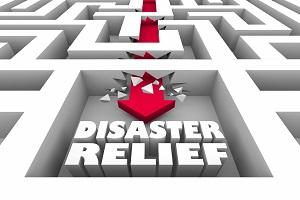Celerity is the essence of any disaster response. Swift distribution of equipment, relief goods and services to those that need them can minimize the destruction and alleviate the suffering inflicted by a disaster, restoring populations to safety, to health and to dignity sooner. But velocity of action is governed by the efficiency of logistics and planning. Vast volumes of humanitarian aid can flow from diverse streams in the wake of a disaster, but bureaucracy and disorganized management can delay this needed relief from its destination. This issue can be particularly prevalent at border entry points that can receive an influx of 10x the usual cargo in the aftershock of a disaster.
In order to address these issues, UN/CEFACT, in cooperation with UN OCHA and IMPACCT Working Group, has produced a set of recommendations for the simplification and harmonization of cross-border trade and administration processes to facilitate the delivery of disaster relief goods and services. The recommendation 44 on ‘Cross-border facilitation measures for disaster relief’ advocates for robust collaborative efforts to develop preemptively clear procedures and contingency plans to ensure the smooth passage and processing of disaster relief goods and services through customs and borders.
As we enter an age of rising climate volatility and uncertainty, natural disasters are increasing in frequency and reverberating more violently, and thus preemptive and strategic planning will be increasingly necessary. Anticipatory measures ought to be adopted to overcome the bureaucracy involved in providing aid, to strengthen multilateral cooperation and instill flexibility and adaptability into aid protocols at borders.
The recommendation underscores the need for simplification and harmonization of border processes in disaster scenarios and details a number of solutions to achieve this. One such measure is the implementation of ‘One-stop-shops’. A ‘One-stop-shop’ would be a physical location where multiple agencies are responsible for the arrival and processing of relief items and personnel. It would serve as the contact point for all key stakeholders in disaster relief and improve the efficacy of processing registrations for eligible assisting actors and the handover of relief goods. Prior agreement of procedures should be done in advance and careful consideration of location should be given, with the report suggesting key air, maritime and road entry points as ideal places for ‘One-stop-shops’. To improve the efficiency of this idea, the report proposes ‘One-stop-border-posts’ where cross-border traffic is only mandated to stop at a single post where neighboring officials work together.
The report further stresses the need for greater clarity and preemptive planning in coordinated border management. It advocates for the publishing of lists of relief items and services to be prioritized based on initial rapid needs assessments, such as medicines and water purification units and for pre-lists to be drawn up of common international relief item specifications and existing registered stockpiles. Furthermore, it calls for a streamlining of coordinated border management, aligning practices and work such as joint inspections and checks as well as coordinated bodies such as working groups and inter-agency meetings to improve cooperation. The context and requirements of border procedures are changeable, and the report calls for clear communication for waivers and exemptions, temporary admissions for relief goods or changes in protocol.
Moreover, the report underscores the need for capacity building in cross-border cooperation. Simulation exercises are a central component of this to aid preparedness planning and train staff. The report recommends in particular that airports carry out such exercises recognizing the crucial importance airports have in aid delivery as well as communications and the rapid dissemination of information. Regular participation of cross-border agencies and key stakeholders, such as those detailed in the UN/CEFACT International Supply Chain Reference Model (ISCRM), is necessary in these simulation exercises and other capability building efforts based on assessment, such as technical and soft skills training and reviews of processes.
Disasters can evolve and metamorphose rapidly, and time is a critical factor in providing assistance, and ultimately, in saving lives. When disasters happen, it is crucial that all the relief that floods into the afflicted regions from multiple centres be able to cross borders and their safeguards efficiently and quickly. The guidelines by UN/CEFACT on the facilitation of disaster relief should ensure that life-saving products and equipments can cross borders and reach the people that need them when they need them.
Note to Editors
About the IMPACCT Working Group
The IMPACCT Working Group consists of Organisations such as the International Federation of the Red Cross and Red Crescent Societies (IFRC), United Nations Conference on Trade and Development (UNCTAD), The World Customs Organisation (WCO), Save the Children International, International Telecommunications Union (ITU), Medecins Sans Frontières Belgium, HELP Logistics, The World Bank, and International Humanitarian City.


